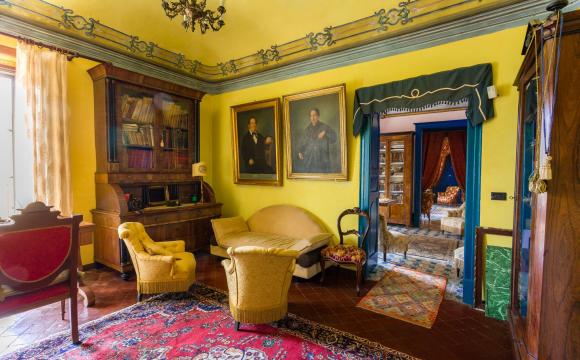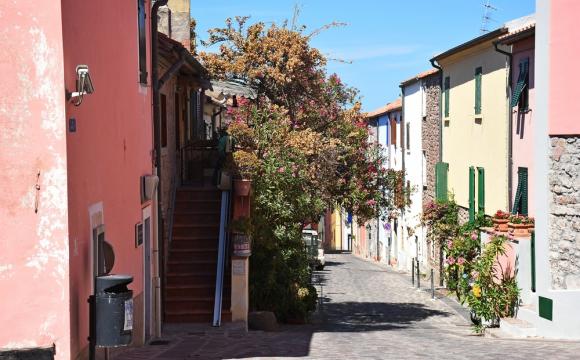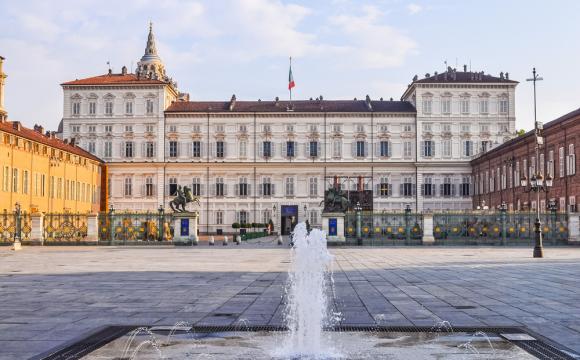 (ANSA) - The number of migrants arriving in Europe from Africa by boat is a problem for the entire international community, Italian Interior Minister Giuseppe Pisanu said here on Monday.
(ANSA) - The number of migrants arriving in Europe from Africa by boat is a problem for the entire international community, Italian Interior Minister Giuseppe Pisanu said here on Monday.
Addressing a meeting of Western Mediterranean interior ministers, he urged other European countries to help African states tackle the issue.
"North Africa is under enormous pressure with arrivals from Sub-Saharan Africa, which it is unable to contain," said Pisanu.
"This is why we must boost collaboration and international efforts on both sides of the Mediterranean in order to fight the problem".
Italy's extensive coastline and vicinity to Africa have long made it a popular entry point for migrants trying to enter the European Union but according to Pisanu, numbers have risen sharply over the last year.
In a letter to Monday's edition of daily La Stampa, he said that 15,327 people had arrived in the first nine months of 2005, compared to 9,959 during the same period last year. Italy's southernmost island of Lampedusa, which lies closer to Tunisia than Italy, bore the brunt of the arrivals, accounting for two thirds of the total, he said.
"The problem has swelled to worrying proportions," he added. The minister criticised European nations for not doing enough to help, stressing that it was an issue for the entire bloc. "I have personally experienced the slowness and reluctance of many European countries in dealing with the problem," he said. A recent wave of migrants trying to break into the Spanish enclaves of Ceuto and Melilla on the North African coast should be a "wake-up call" to the EU, said the minister.
ACCORDS WITH AFRICA
Pisanu said the only way to deal with the problem was by tackling it at its "root", improving the situation in Africa and working with the countries migrants originated in. "We need a European plan, a kind of Marshall Plan, to help Sub-Saharan countries create acceptable work and living
opportunities," he said.
"Everyone agrees that Africans don't want to leave Africa but they need some kind of hope if they are to remain." But in return for help, he said, African governments had to do their share, by preventing illegal economic migrants from departing. He suggested bilateral accords between European and African countries were one answer, citing a controversial agreement between Rome and Tripoli, signed in October 2004.
As well as establishing immigrant holding centres in Libya, this has helped Italy fast-track deportations of migrants thought to have arrived from the North African state. "Libya has described its cooperation with Italy in the fight against illegal emigration as exemplary," said the
minister. "Rome's collaboration with Libya is a commitment that should be pursued and intensified in order to more efficiently fight the criminal organisations that grow rich by trafficking illegal immigrants."
Italy has carried out several group deportations since signing the accord a year ago. Most notably, a thousand migrants thought to have arrived from Libya were airlifted to Tripoli last October, while nearly 200 met the same fate in March. The agreement, the details of which were kept secret, came under widespread fire from members of the opposition, human rights and humanitarian organisations, the European Court of Human Rights and the United Nations High Commissioner for Refugees (UNHCR).
The European Parliament adopted a resolution accusing the Italian government of breaking international conventions and putting immigrants' lives at risk by sending them back to countries where their safety could not be guaranteed. The EP noted that "Libya is not a signatory to the
Geneva Convention [against torture]... does not have an asylum system and does not offer a real guarantee of refugees' rights." Critics also complained that mass expulsions prevented individual cases from receiving adequate attention. But the centre-right Italian government has defended its policy, claiming that each application is examined on a case-by-case basis. It also insists that direct cooperation with countries outside the EU is the only way to stem the flood of arrivals.
Earlier this year, the government revived a British proposal that the EU set up joint immigrant processing centres outside the bloc, tackling the issue at its "point of origin". However, the proposal was shelved after receiving a cool reception from Spain and France.












